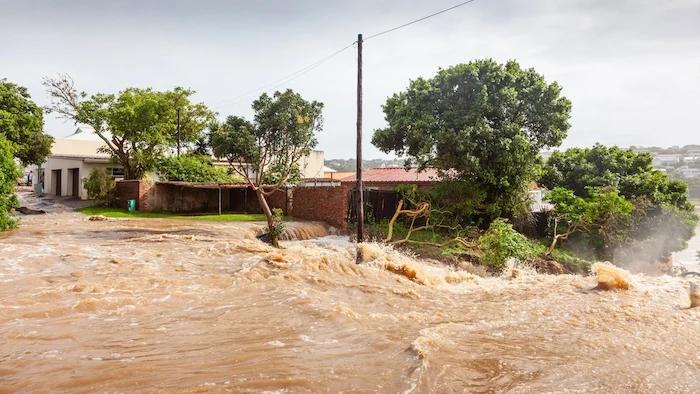Table of contents
Can we survive in climate change?
Survive climate change from global warming. This has become the task of a generation. Climate change is the biggest threat to the health and survival of human kind, but our species will survive. As a result of past inaction, the impacts of climate change look increasingly dire.
Indeed, they range from apocalyptic climate disasters, such as scorching bushfires, record temperatures and sea-level rise, which is engulfing our coastal cities.
There are practical things you can do that we examine. However, we are experiencing this problem because of a failure of public policy. Consequently, in addition to individual actions, we talk about campaigning politically for stronger action by government. It is possible to survive climate change – if we act now!
Fossil Fuels and Global Warming
The burning of fossil fuels such as coal, oil and natural gas have dramatically increased the levels of carbon dioxide and other greenhouse gases in the atmosphere. Carbon dioxide traps heat obtained from sunlight and does not let it dissipate out of the atmosphere.
This process is known as the greenhouse effect. This greenhouse effect is causing considerable increases in the temperature on earth. This global warming is resulting in climate change that is an existential threat to life on earth.
Emissions from fossil fuels, such as coal, oil and gas are overwhelmingly the cause of climate change. They make up over 75 per cent of global greenhouse gas emissions and around 90 per cent of all CO2 emissions.
Who will Survive Climate Change?
Sea-Level Rise
Global warming is directly resulting in rising sea-levels. This is due to increasing meltwater from glaciers and ice sheets and the thermal expansion of seawater (as it warms).
Around 40 percent of the world’s population live in densely inhabited coastal zones. In such areas, sea level is playing an increasing role in flooding, shoreline erosion, and hazards from storms. These problems are exacerbated during king tides and storm surge.
Is it too late to stop climate change?
Survive Climate Change Disasters
Climate change is impacting weather and climate everywhere, including heat waves, flooding, droughts and tropical cyclones.
Rising temperatures are increasing the intensity of droughts and wildfires in hot, arid regions. Indeed we have experienced unprecedented floods in Australia, heat waves in India and record bushfires in California. This shows us what we can expect from global warming. However, as the planet becomes even hotter, such disasters will become yet more intense.
With significant levels of sea level rise now baked into the system, it is more important than ever to make greater emissions reductions.
As climate change is a problem for the world an international response is clearly needed. Indeed the survival of human civilisation is now dependent on a stronger international response to this impending threat.

United Nations C.O.P.
The United Nations yearly Climate Change Conferences serve as the formal meeting of the UNFCCC parties (Conference of the Parties, COP).
The Kyoto Protocol signed in 1997 established legally binding obligations for developed countries to reduce their greenhouse gas emissions.
Subsequently, from 2011 to 2015 the meetings were used to negotiate the Paris Agreement. Indeed this agreement required all countries to set emissions-reduction set targets, known as nationally determined contributions (NDCs). The goal was to prevent the global average temperature from rising 2°C above preindustrial levels. It also set the goal for the world of reaching net-zero by 2050.
The first UN Climate Change Conference was held in 1995 in Berlin, while the most recent C.O.P. was held in 2022, in Sharm el-Sheikh in Egypt.
Activism to Survive Climate Change
We have now reached the stage where many of us believe protest must include civil disobedience. Indeed this response is in proportion to the increased threat now posed by global warming.
One of the first international climate groups leading the protest against climate change was 350.org. As the name suggests the goal of 350.org was to keep carbon dioxide (CO2) to 350 parts per million — the safe concentration of CO2 in the atmosphere. Unfortunately, due to the lack of early action transitioning away from fossil fuel, the level of CO2 in the atmosphere is now over 400ppm. A new record high of carbon dioxide in the environment was set when the planet recorded 414.72 ppm in 2021.
The largest global group to arise in more recent times has been Extinction Rebellion which was founded in 2018. Extinction Rebellion has by necessity adopted a more urgent approach to protest based on principles of civil disobedience.
Climate Change Links
Below are a number of articles in relation to Climate Charge. Some negative changes to our climate have become unavoidable as a result of a lack of action to limit fossil fuel emissions. Indeed some are already being experienced.
We have also assembled information for you on the risks of extreme heat and other dangers to help you survive in a time of climate change.
Reduce Your Carbon Footprint
Taking just a few simple steps can make a huge difference! Learn how to reduce your carbon footprint with these 7 easy habits.
Survive Risings Sea Levels and Flooding
Sea-level rise is one of the catastrophic consequences of Climate Change, with frightening implications for coastal cities.
Fight Climate Change Politically
What can you do to help fight climate change? You can do a lot, with your vote, by attending rallies and by speaking out on this issue.


Comments
4 responses to “Survive Climate Change: Your Guide!”
Hello
This is Mike Oakman
Let me introduce to you our latest research results from our constant SEO feedbacks that we have from our plans:
https://www.strictlydigital.net/product/semrush-backlinks/
The new Semrush Backlinks, which will make your survive-climate-change.com SEO trend have an immediate push.
The method is actually very simple, we are building links from domains that have a high number of keywords ranking for them.
Forget about the SEO metrics or any other factors that so many tools try to teach you that is good. The most valuable link is the one that comes from a website that has a healthy trend and lots of ranking keywords.
We thought about that, so we have built this plan for you
Check in detail here:
https://www.strictlydigital.net/product/semrush-backlinks/
Cheap and effective
Try it anytime soon
Regards
Mike Oakman
[email protected]
Hi there
Just checked your survive-climate-change.com in MOZ and saw that you could use an authority boost.
With our service you will get a guaranteed Domain Authority score within just 3 months time. This will increase the organic visibility and strengthen your website authority, thus getting it stronger against G updates as well.
For more information, please check our offers
https://www.monkeydigital.co/domain-authority-plan/
NEW: Semrush DA is now possible
https://www.monkeydigital.co/semrush-da/
Thanks and regards
Mike Donaldson
Good Day
I have just verified your survive-climate-change.com for the current onsite SEO status and saw that your website has a handful of issues which should be addressed.
No matter what you are offering or selling, having a poor optimized site, full of bugs and errors, will never help your ranks.
Let us fix your wordpress site errors today and get your ranks reach their full potential
More info:
https://www.digital-x-press.com/product/wordpress-seo-audit-and-fix-service/
Regards
Mike Fleming
If you have a local business and want to rank it on google maps in a specific area then this service is for you.
Google Map Stacking is one of the best ways to rank your GMB in a specific mile radius.
More info:
https://www.speed-seo.net/product/google-maps-pointers/
Thanks and Regards
Mike Thorndike
PS: Want an all in one Local Plan that includes everything?
https://www.speed-seo.net/product/local-seo-package/